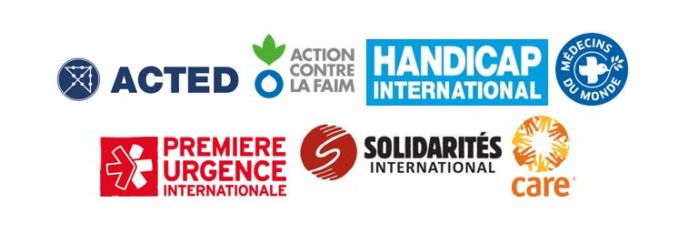Press conference – Wednesday 22 March at 10 a. m.
2 YEARS OF CONFLICT IN YEMEN
SEVEN INTERNATIONAL NGOs WARN OF ONE OF THE WORLD’ S MOST SERIOUS HUMANITARIAN CRISIS

26 March 2017 will mark the two-year anniversary of the launch of the armed offensive in Yemen by a coalition of countries led by Saudi Arabia. Two years after the escalation of the conflict, Yemen faces one of the world’s most serious humanitarian crises, with nearly 19 million people in need of humanitarian assistance and persistent alerts of famine.
Risk of impending famine
“In Yemen, 17 million people are food insecure, or 60% of the population. 462,000 children under five are in immediate danger of death because they suffer from the most severe form of malnutrition. There were 170,000 in 2014, an increase of more than 200%!” says Isabelle Moussart, Director of Operations at Action contre la Faim.
The United Nations resolution 2216 of April 2015, which established an arms embargo against the Houthis and their allies, turned into an air and sea blockade that prevented almost all imports of basic necessities, including food. Restrictions on wheat imports are now the biggest problem in the country and the main threat to food security, while the country imports 90% of its food. There is a risk that famine situations will be multiplied throughout the country,” explains Liny Suharlim, ACTED Country Director in Yemen.
Disregard for the protection of civilians
The 7 NGOs are alarmed by the widespread and repeated use of explosive weapons in densely populated areas in Yemen. Though it is against international humanitarian law, the use of explosive weapons in populated areas has become systematic in contemporary conflicts in defiance of the fundamental principles of warfare.
“The daily bombardments in Yemen bear witness to an absolute contempt for the lives of civilians! Every day, our teams, when they can reach the populations, are confronted with the physical and psychological distress of traumatized civilians. This open-air massacre is unbearable and unworthy of our times,” said Jean-Pierre Delomier, head of Handicap International’s emergency response. The physical and psychological suffering caused by these injuries is compounded by the lack of access to care.
Destroyed by the violence of the fighting at the end of October 2016, less than half of the country’s health facilities (hospitals or health centres) were functioning. The health system in Yemen, particularly affected by the conflict, is in danger of collapsing. Establishments are also being penalized by the blockade imposed and the financial crisis in the country: the supply of medicines and medical devices remains very difficult and health workers have not been paid for many months. “The war is now protracted, to the detriment of civilians. Cholera has been spreading since last October with more than 20,000 suspected cases and nearly 100 deaths. Mental health disorders such as psychosis, anxiety and post-traumatic stress disorder are also very often diagnosed,” says Dr. Jean-François Corty, Director of International Operations at Médecins du Monde.
Limited humanitarian access
Two years after the conflict began, access to vulnerable populations remains very limited and constitutes one of the major challenges for humanitarian actors: none of the parties in the conflict is facilitating the smooth delivery of aid. The partial or total destruction of many infrastructures (roads, bridges, airports, ports) and public buildings severely restricts the movement of humanitarian personnel and goods, as well as access to basic services for Yemenis.
“For aid workers, the difficulties in accessing populations tend to increase. We call on the international community and the parties to the conflict to increase their efforts to improve this still insufficient access,” said Hélène Quéau, Director of Operations for Première Urgence Internationale.
At the end of the conference, the seven NGOs called on the international community and all parties to the conflict to mobilize much more forcefully so that everything possible could be done to remove as soon as possible the obstacles to the delivery of aid to Yemen, in this pre-famine context. They call for a blockade, effectively preventing imports of food and medicines, to be lifted and for the rights of civilian populations to be respected.
Speakers at the press conference:
Action contre la Faim
CARE
Handicap International
Médecins du Monde
Première Urgence Internationale
Solidarités International
At: Médecins du Monde
62, rue Marcadet 75018 Paris
Métro : Ligne 12 – 4 Marcadet poissonniers
Entrée libre
Press contact
Tugdual de Dieuleveult
tdedieuleveult@solidarites.org
01 76 21 87 11 / 06 64 92 50 37
